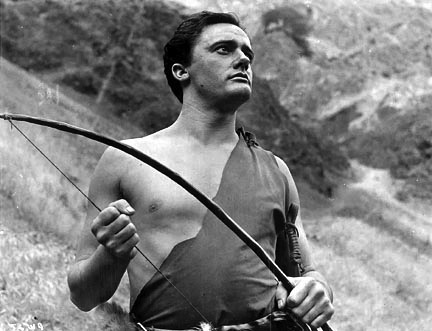
OR, SLAYING THE MONSTER OF RECOLONIZATION
One of the biggest challenges people of european heritage face as we engage in ancestral recovery, re-indigenization and decolonizing movements of life, is to maintain awareness of how we do things. What are we really creating as we decolonize? Are we authentically connecting to life and healing ourselves, or are we doing something else?
As we reawaken ourselves, it is so easy to take the beautiful understandings that we learn, and then process them, use them, convert them – back into colonized thought forms – into colonized acts. We re-colonize and re-settle ourselves. These acts might look like:
- BOLSTERING INDIVIDUAL EGO to prove we are special or unique. For example: “Because I had a strong vision or spiritual experience, I must be a shaman.” Having a strong dream, vision, or experience doesn’t make you shaman – it means you are alive.
- FILTERING AND TWISTING INTUITIVE KNOWLEDGE like dreams and visions into colonized forms. One example of this might sound like. “I had a dream about the Lakota people, therefore I should adopt Lakota culture and spirituality.” Without the ancestral knowledge to interpret dreams, we twist their meanings into some pretty silly things. This is one reason why these transformations must involve communities of people, so we can help each other limit detours and dead-ends.
- CREATING ‘SYSTEMS’ THAT PACKAGE AND COMMODIFY living, intuitive knowledge into colonized teaching systems. You can see examples of this with workshop titles like: Ancestral Legacy & Personal Healing Workshop…Cost: $90- $144 per day (old link is broken). The website this was featured on was apparently a fairly popular “recovery of the Indigenous mind” program. Clearly, something wasn’t recovered. Would you ever pay someone to connect you with with your own mom or dad? How about your child? So why are you paying to “connect” to your ancestors?
- COMMODIFYING SACRED KNOWLEDGE, relationships, and life forms. Examples of this include selling ceremony, healing, or spiritual knowledge. These kind of sacred understandings do not belong to us. We borrow them from our ancestors and relatives to share freely with others, not turn them into careers or money making ventures. Do you really believe your ancestors want their knowledge shared only with those privileged and wealthy enough to afford it?
- CLAIMING SETTLER NATIVISM through the shallow belief one may obtain enough Indigenous-ness to earn the entitlement of living on stolen Native lands in America (or elsewhere) without dispute. This evasion may arise when people seek to reclaim an “Indigenous mind”, learn a level of “primative” or wilderness skills, seek neo-tribalism, or learn their ancestry without connecting those ancestors to a home place and way of life. An example of this might sound like, “I live wild with primitive skills in the woods of Oregon and feel connected here. I deserve to be here.” These kinds of attitudes merely perpetuate colonization and resettlement. We can do better.
As awakening people of European heritage, we benefit by holding each other accountable with compassion and understanding so these shallow movements that lead to re-colonization, resettlement, appropriation, and commodication can be addressed.
We also have a responsibility to the Indigenous people of the Americas, Australia, Afrika, etc. to hold our own accountable when they behave in harmful ways so Native people don’t have to.
Just remember, some of the people who make these diversions are likely related to you – they are your relatives. Connecting to what’s alive means everyone counts. If we cannot help our own people grow and heal authentically into deep movements of decolonization, who will?
Get the latest updates and resources...
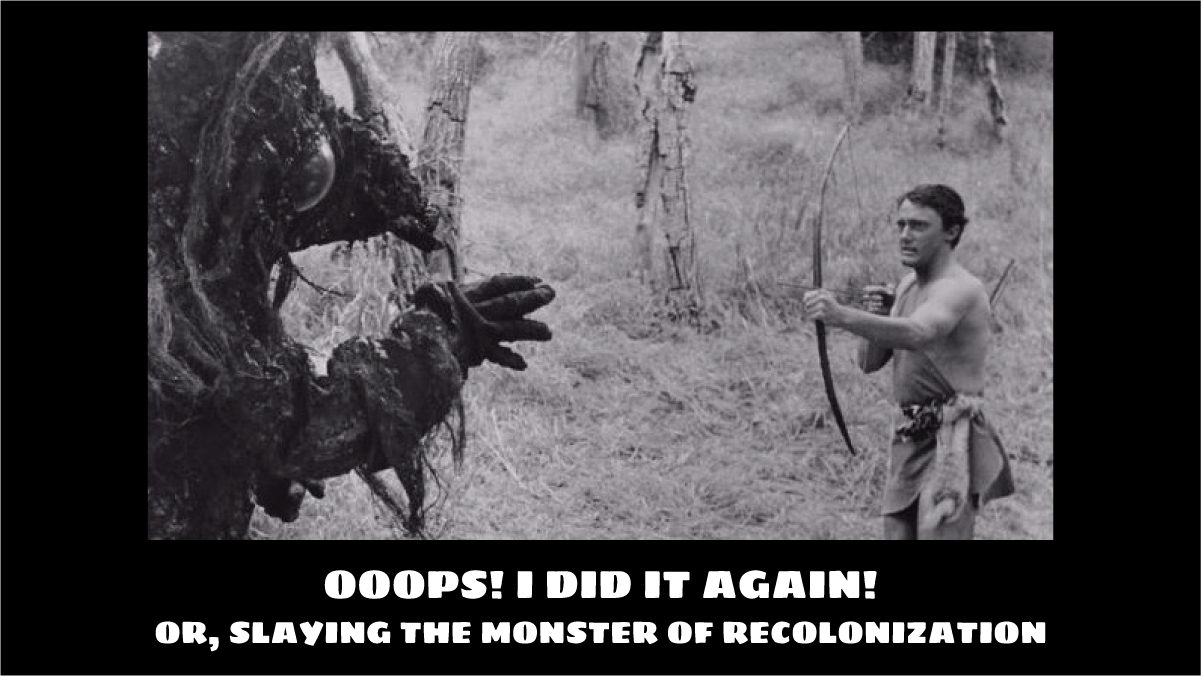
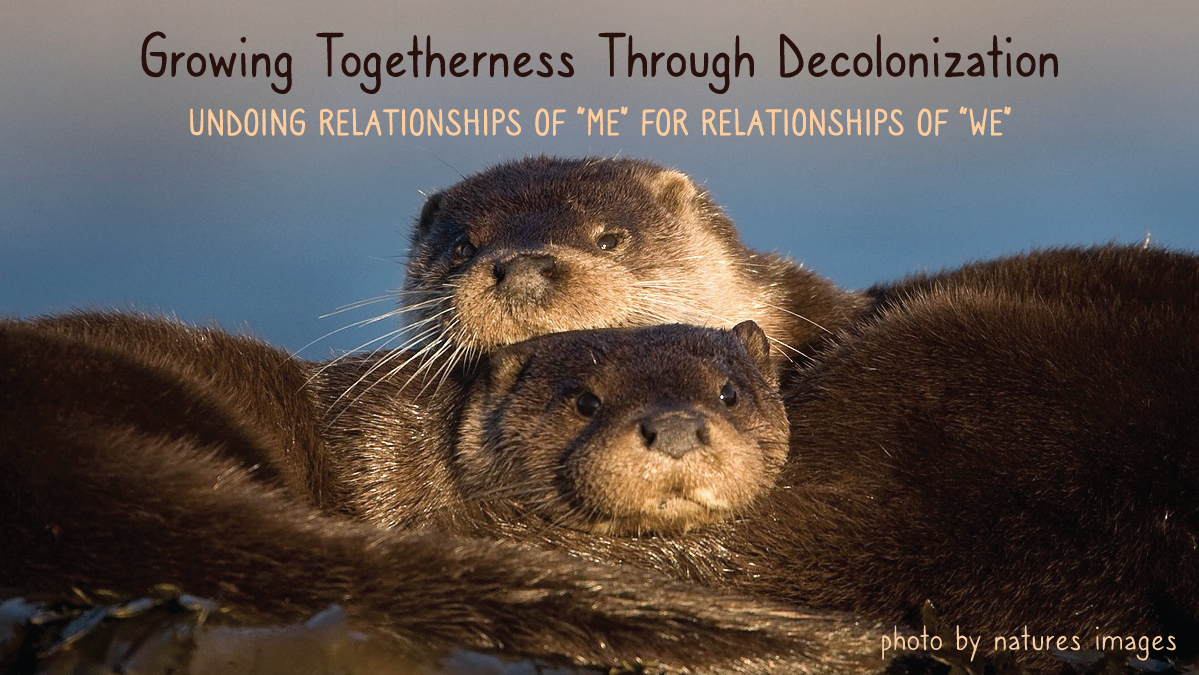
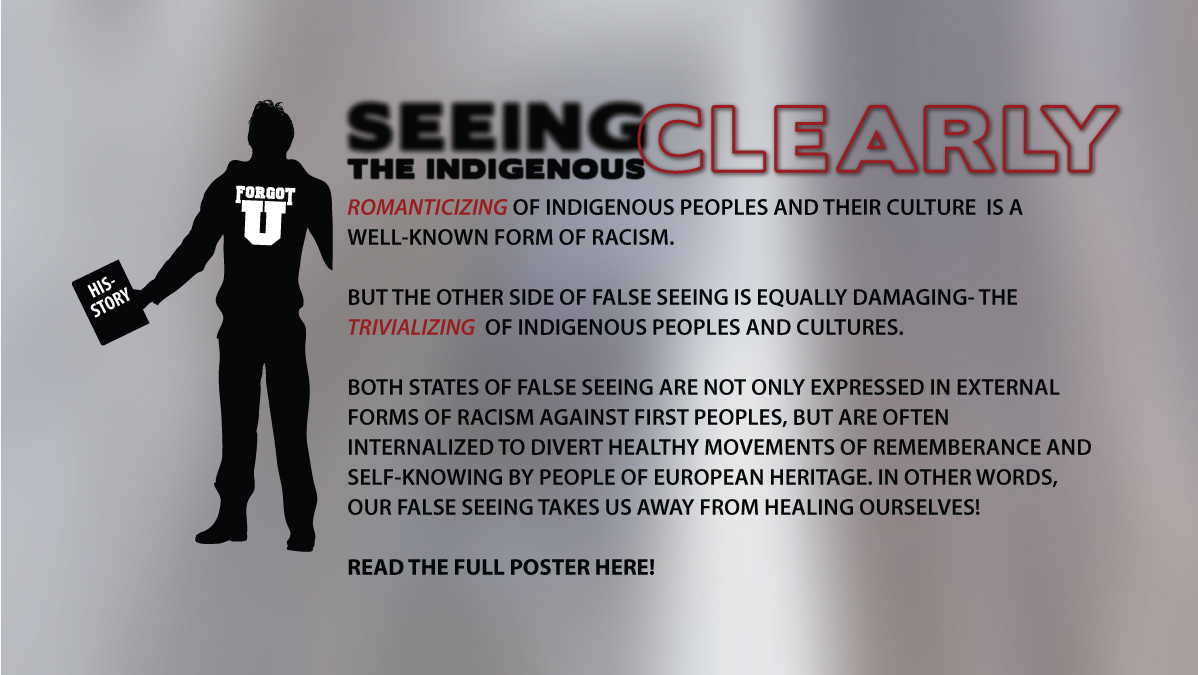
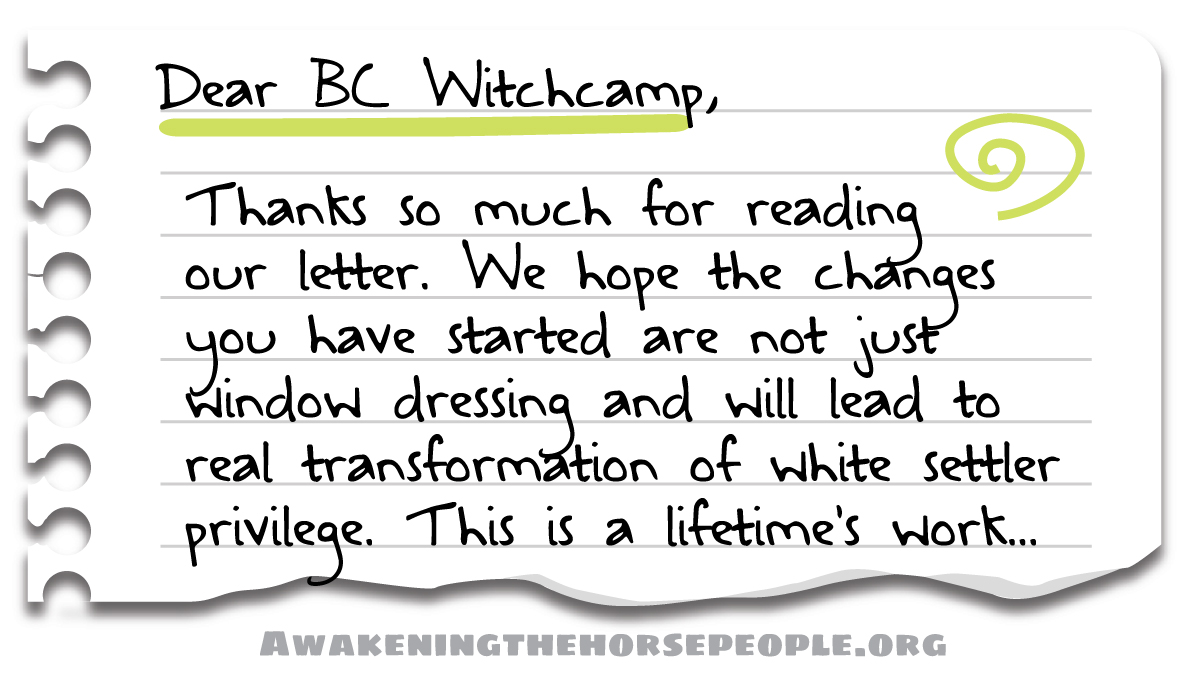
Reblogged this on Unsettling America.
Potent. Thank you.
i strongly disagree with the majority of this article, most of which, i feel, actually romanticizes and utopian-izes ideas of indigenous well-being that are not actually grounded in historical or contemporary basis. ideas of reciprocity and being in right relationship with those you go to for aid due to their being a specialist in the healing arts is a reflection of the way one works to be in right relationship with all other elements of life. this way of being in right relationship does not translate easily into western capitalism, especially the level of scarcity-based capitalism that we are currently under in the U.S., but innumerable healers find ways to meet their communities and live decent lives at the same time. “Without the ancestral knowledge to interpret dreams, we twist their meanings into some pretty silly things. This is one reason why decolonization must involve communities of people, so we can help each other limit detours and dead-ends.” i’m more excited about community helping us to expand in better directions and in good ways (via consultation with indigenous elders and traditional divinatory methods) than simply saying “no, that can’t possibly be right,” which is just as strongly a denial of Spirit’s aliveness and dynamism in our now global society.
I think your website speaks for itself.
I’d love for you to explain / expound upon that statement.
Khi, maybe i can help. One, you promote charging money for the shamanism you agree (?) with. Two, you seem uncritical of this concept. You have products (albeit, apparently not mass market) you promote. That’s my two cents.
I do charge money for the work I do as a shaman, psychic medium, and rootdoctor. I charge a fair exchange for work that has taken me years learn, has required tremendous obligatory sacrifice beyond the scope that I can even write about here (and continues to), requires supplies and materials, and constitutes my livelihood. I also do my best to meet people where they are by financially by teaching them techniques for helping achieve what I could do for them at significantly lower cost. How would you suggest that I go about this? Live on the street and provide wisdom to passersby? Steal food for myself and candles and herbs for my work? Not to mention the cost of housing. I’m curious to know what you are thinking here. In many traditional cultures, medicine people are the wealthiest in the village and are therefore able to give back even more to their communities. Amongst the Lakota, a good name for a newborn male from a winkte (third-gender male-bodied person) was exchanged for a horse. A whole horse for a secret name. Please continue…
Thank you for this. Not only how we do thing, but also why. Both can become twisted. We have a lot of giving to do and the responsibility to stop the atrocities.
I love your perspective. It fills me with excitement and a sense of personal empowerment & responsibility. I believe you are pointing in a good way.
I would add another “act” of recolonization that I often see, even, and especially, in the groups of decolonizing/activist/wilderness folks:
LIVING ACCORDING TO WHAT YOU HATE INSTEAD OF WHAT YOU LOVE: It isn’t natural to live according to hate. It may be indigenous – if indigenous means “from here” – but let me choose a better word to describe what I mean. It isn’t inspiring because it isn’t functional, ultimately, to long-term health for individual, human community or eco-community. Frequently, I see people with a genuine interest and passion to decolonize and protect what is wild using only the tool of their own sense of what is wrong, rather than having the courage, faith and acceptance to move in a direction of what is right. This is because the courageous path is wilder, more all encompassing, and requires a steel stomach to put up with all you find detestable, but gets to live anyway. The thought pattern in this act is “those people (i.e. yuppies, 1%ers, re-settling decolonizers, fill in the blank) are wrong in their approach, style, actions or world-view. I therefore reject them, unless they change.” It is clubby and exclusive, and ultimately, merely a lack of soul-commitment into the wild unpredictability of interpersonal humanness that sees life as “is what it is.”
I am not vying for acceptance of destructive, albeit unconscious, behavior. Actions that destroy, consciously or unconsciously, need to be confronted. But when the people who still have a little bit of unconsciousness in a way you hate are thusly hated by you, you need to try and do whatever you can to realize you are hating, and stop. Otherwise you risk awakening in yourself the very unconsciousness you despise. I am not saying “you” as in you, Naomi, but you as in a person. I should actually say “I” (and I do in the post script below).
This is why I love the phrase “The job of the artist is to make the revolution irresistible.” Our job is to become spiritually big enough to “love what we love more than we hate what we hate” (Martin Prechtel), to realize life is accretive, wild and never controllable, and to model the kind of behavior we see in all beautiful spiritual beings, like Gandhi, Mandela and King — acceptance, humility, and courage.
Otherwise all you belong to is a glorified club, not a true soul-rooted, growing tree of inspiration, wild-at-heart artisan of what is possible.
The best examples of what I am talking about are often people that have been hugely oppressed, in a real way, yet have the strength and courage of spirit to rise above the victim-rooted sense of “tribe” and have moved into a true priestliness that extends love and compassion to all humans.
p.s. I would add I am deeply aware that my own sensitivity to being rejected is why I can see this so clearly, and I know that my deep task is to learn to accept the rejectors; to love those that hate me. It is hard for me and I don’t expect it to get easy any time soon, but I do accept the task.
I see some dangers in what appear to me to be rigid thinking in some of the thought this post. Sorry if i seem to make this more complicated, but that’s where i’m at! {;
Take the tendency of many people to assume that “ego” is a problem that has to be crushed, instead of a possible gift in its symptom-ing reality. You are not doing that, and yet i’m feeling that you are judging “ego” as always bad, in your call to stop “bolstering” it. And i think that is to not see its value in the process many of us cannot help but to be in! A truth of who we tend towards being in the context of a deeply imprinted colonialism which wants us to focus only on ourselves, in an alienated position. And yet there’s a reason it keeps coming back up and challenging us (in our champion intuitions that know we are each unique and special, regardless of others’ seeming desire to “shout it down”). i see such as a power that can be explored more deeply via creatively intelligent processes we mutually engage in, instead of only deriding it!
What is so wrong with “silly” things? Again, i see the value of process here being disregarded, while someone sits on what feels to me like a “high horse” (heh). i say, let people be where they are, while continuing to creatively confront, as we/others feel the desire! Not merely writing “rules” in stone, so to speak. Anyway, what is community without the power of each of its people, no matter how imperfect??!! The reality is that many of we unsettling settler people ARE without community, and we have found strength to continue on individually, as a survival mechanism (or something like that). We do seek meaningful community, but are we going to find it by being castigated like this? Maybe…or maybe not, or maybe some grey area….since, hey, we ALREADY are saddling ourselves with these UNSETTLING ideas!!!!
Finally, on Claiming Settler Nativism, the key there for me is “dispute”. That works both ways, y’know. The problem here, as i see it is, a Dick Wilson (of anti-AIM fame) can come in and Tell a re-wilding settler that she’s Out of Order –and you want us to uncritically subordinate? i say, watch out for the hierarchy of that one. Yes, we all should respect you all for the truths, and yet, how can we live in friendship, best? By tactics which insert hierarchies? i don’t think so! Only authoritarians will buy into that uncritically! And do you REALLY WANT that kind of reflection????
i DO like this one: “…we benefit by holding each other accountable with compassion and understanding…” And as for settlers holding other settlers accountable? i say, watch out for the fine line of how that can turn into fascism, or as some anarchists have called it (and i don’t totally “get” that), bureaucracy.
(btw, i look forward to any attitude adjustment you think i may need to have!)
Just so you know.. I haven’t been on the blog in a while to approve comments. I’m just getting to them now. I approve everything but flagrant misinformation and attack posts. Hope this answers your concerns.
Ana
Criticism around charging for spiritual work seems grounded in a colonialist impulse to lump the huge diversity of first people’s spiritualities into “indigenous wisdom”, as if there is only one right way to do things.
A Lakota medicine person would never take money for a ceremony or healing, while a traditional Zulu Sangoma would be REQUIRED to have money in hand from the client under their divining mat before they were even allowed to begin the session by their spirits and ancestors. Neither is better or worse, just different, each with their own respective challenges.
In a contemporary culture where the reclaiming of these traditions and innovation of new ways of working with our spirits is very young, we must feel out for ourselves what protocols work for us, for our clients/community and most importantly for the spirits we depend upon to do this work.
I also think it is a misnomer to say that those who charge money for spiritual services are limiting access. All of the full time shamans, healers and rootworkers I know also do volunteer work as well as find ways to help those who do not have the resources to pay when they can. The fact that they charge those who can pay allows them to do this while still honoring their own boundaries and resources.